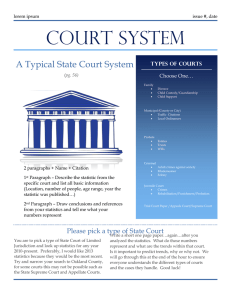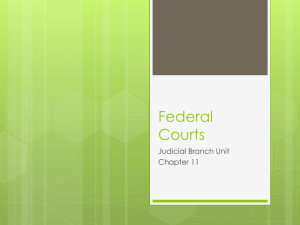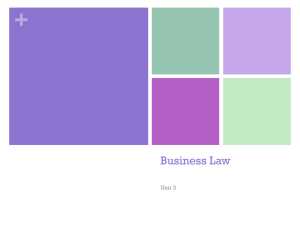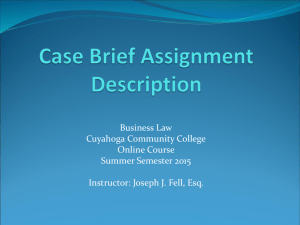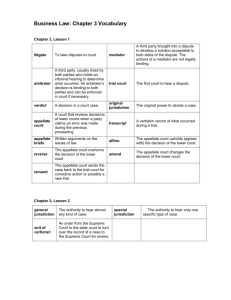Funeral Service Law
advertisement
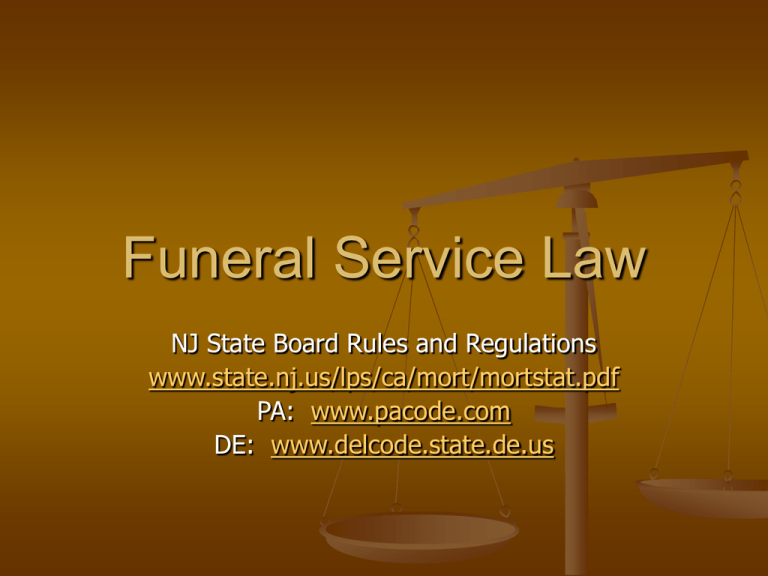
Funeral Service Law NJ State Board Rules and Regulations www.state.nj.us/lps/ca/mort/mortstat.pdf PA: www.pacode.com DE: www.delcode.state.de.us What is Law? “a rule of action prescribed by an authority able to enforce its will” “rules of conduct commanding what is right and prohibiting what is wrong” Failure to comply: sanctions & consequences “law expresses the desired social, economic, and moral standards established by society” Business Law “those rules of conduct prescribed by a government and its agencies in regulating business transactions” e.g. Uniform Commercial Code (UCC) Uniform Probate Code (UPC) Mortuary Law/ Mortuary Jurisprudence/Funeral Service Law “branch of the law which relates to matters concerned with the disposal of the dead and regulation of funeral directors/embalmers and funeral establishments” Early sources of Law Common Law (Anglo-American) Canon Law Admiralty Law Torah (Talmudic Law) Napoleonic Code Roman Law Sources of Law Case Law/Judicial Decisions Administrative Law Constitutional Law Statuatory Law: 1) statutes: “laws enacted by federal or state legislative bodies” 2) ordinances: “laws enacted by local municipal governing bodies” Sources of Law (cont’d) Criminal Law: 1) felony: “a more serious criminal offense that is punishable by death or by imprisonment in a penitentiary for more than one year” 2) misdemeanor: “a les serious criminal offense, generally punishable by fine and/or imprisonment of less than one year” Sources of Law (cont’d) Civil Law (Tort Law) A tort is a private or civil wrong Negligence: failure to exercise the duty of reasonable care 3 types of torts: 1) intentional 2) accidental/negligence 3) malpractice Written Sources of Law Constitution Statutes Ordinances Regulations Written laws are classified and organized as codes and titles. Contract Law Substantive Law Procedural Law Police Power “the inherent power of every government to make reasonable laws to protect the safety, health, morals and general welfare of its citizens” Judicial Process Types of Courts: 1) Federal Courts: a) trial b) appellate 2) State Courts: a) trial b) appellate 4 Types of Federal Courts Federal District Courts Federal courts of Appeals U.S. Supreme court Special Federal courts 4 Types of State Courts Inferior Courts Courts of Original/General Jurisdiction Appellate Courts Special Court Procedures to a Court Date Summons: defendant Parties involved: Plaintiff: “individual who initiates the action” Defendant: “person whom the action is brought against” Government Regulations Anti-trust laws e.g. Sherman Anti-trust Administrative Agencies e.g. OSHA FTC State Board of Mortuary Science

